"Most people die at 25 and aren't buried until they're 75" - Benjamin Franklin
Why?
4 reasons and solutions:
Why?
4 reasons and solutions:
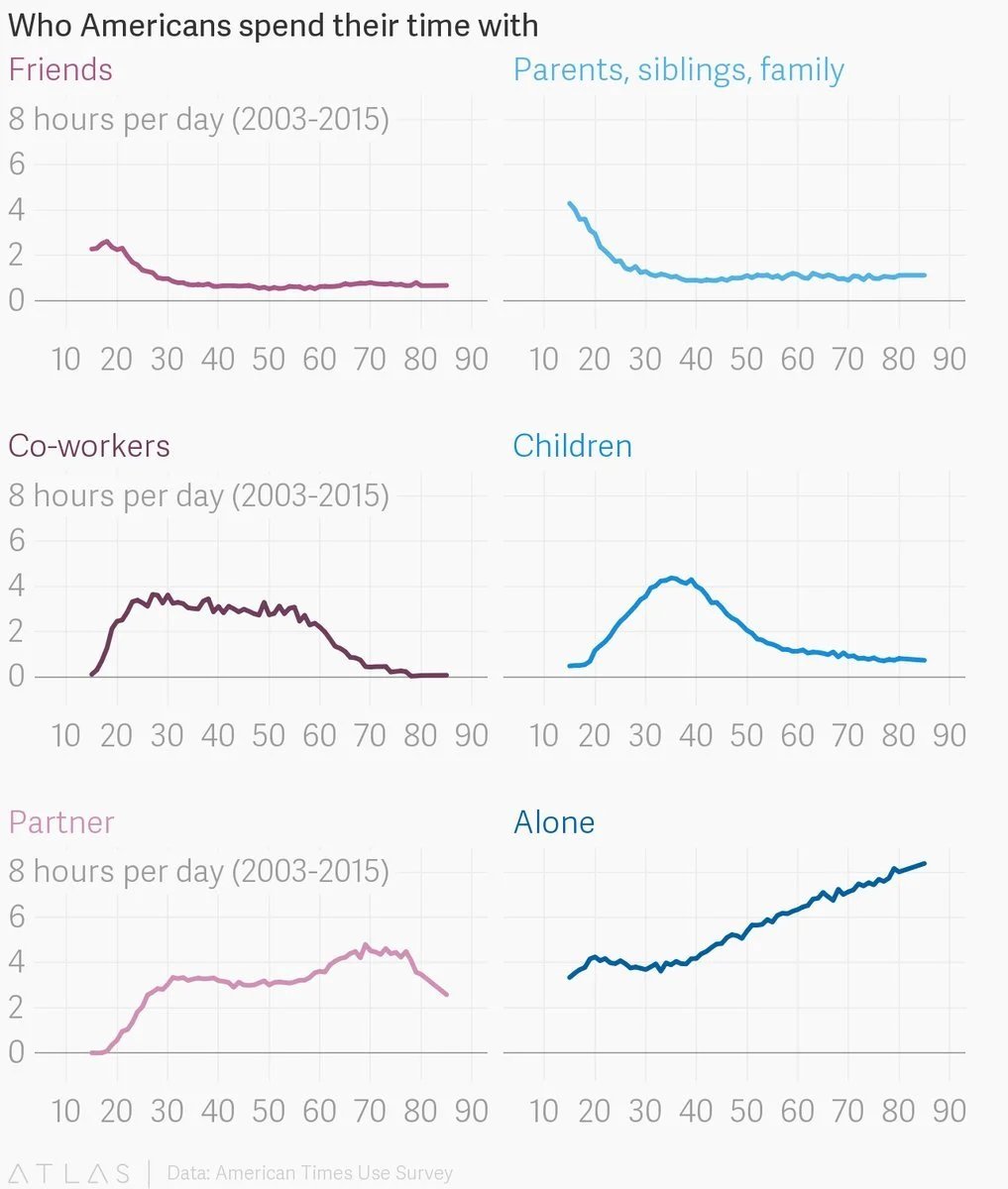
Reason 1 - Milestones
0-25 is a well-designed video game.
You level up each year.
There are regular milestones as you go from infancy to school to entering the workforce.
You constantly feel like you're making progress -- and have reflective milestones.
0-25 is a well-designed video game.
You level up each year.
There are regular milestones as you go from infancy to school to entering the workforce.
You constantly feel like you're making progress -- and have reflective milestones.
After 25, it's a terribly designed video game.
Society places you on your own.
If you don't have the agency to design your own 25+ video game, the only milestones life will give you are the funerals of your loved ones -- followed by your own funeral.
Society places you on your own.
If you don't have the agency to design your own 25+ video game, the only milestones life will give you are the funerals of your loved ones -- followed by your own funeral.
The lack of milestones is one of the reasons why the 25+ crowd complains that time goes faster with age.
All the days blur together like a book without any chapters.
One day you wake up, and you're 64 years old unable to recognize the aged face in the mirror.
All the days blur together like a book without any chapters.
One day you wake up, and you're 64 years old unable to recognize the aged face in the mirror.
Reason 2 - The Parenting Switch
Nobody prepares you for this:
You become the parent to your parents
Typically after 25+, the caregiving duties slowly switch -- and then suddenly, you notice you're now more competent than they are.
Nobody prepares you for this:
You become the parent to your parents
Typically after 25+, the caregiving duties slowly switch -- and then suddenly, you notice you're now more competent than they are.
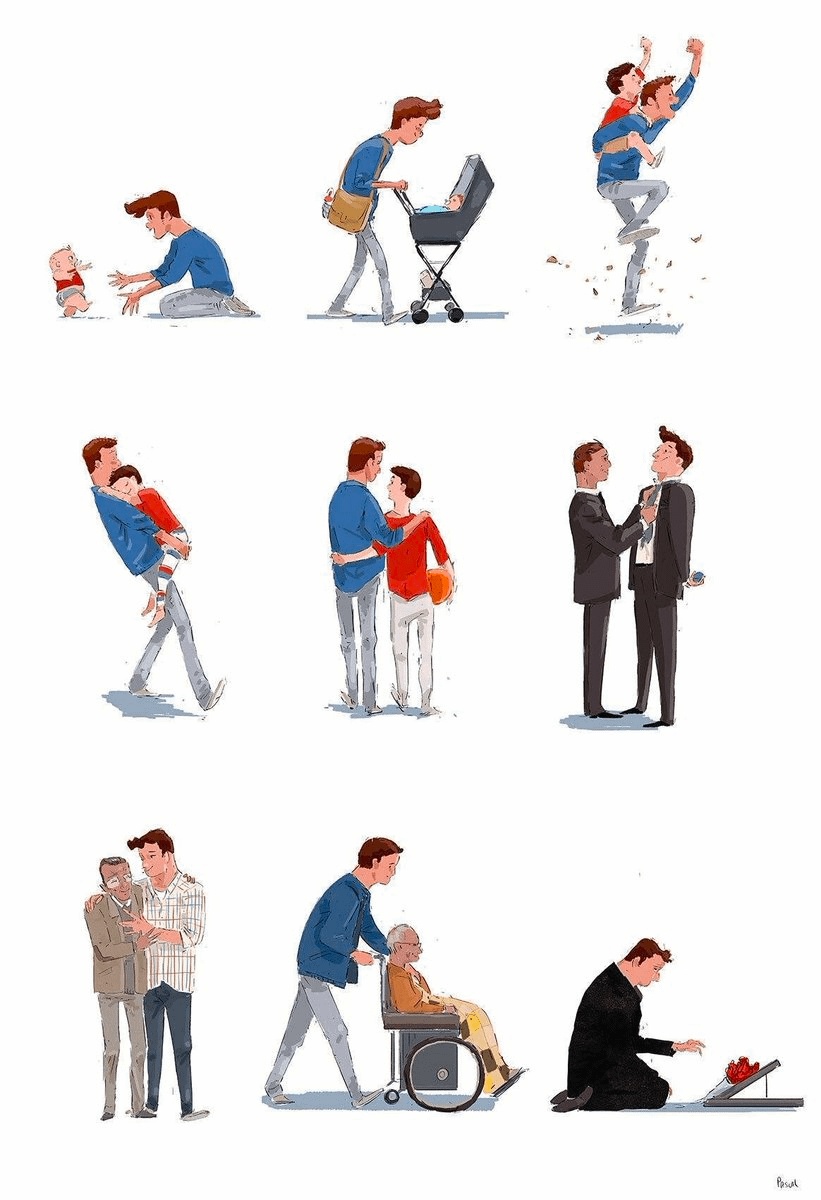
Most only realize the parenting switch after a tragic phone call.
They are met with 2 life shaking outcomes:
Your lifelong crutch can't help you -- and on the same day, you're now their crutch.
They are met with 2 life shaking outcomes:
Your lifelong crutch can't help you -- and on the same day, you're now their crutch.
Reason 3 - Institutionalization
When someone leaves prison, they struggle to reintegrate back into society.
They've adapted to prison life.
When someone leaves the education system, they can face a similar problem.
They've adapted to a game where there's a leader in the room.
When someone leaves prison, they struggle to reintegrate back into society.
They've adapted to prison life.
When someone leaves the education system, they can face a similar problem.
They've adapted to a game where there's a leader in the room.
The current education system was designed to produce factory workers for the Victorian age -- and that's what it produces.
It's like training knife fighting for 21 years -- and then getting dropped into the trenches of WW2.
It's like training knife fighting for 21 years -- and then getting dropped into the trenches of WW2.
Rule of thumb:
The best training systems will closely mimic the environment they are training you for.
The bigger the gap -- the worse the training system.
The current education system has little resemblance to the world it's preparing you for.
The best training systems will closely mimic the environment they are training you for.
The bigger the gap -- the worse the training system.
The current education system has little resemblance to the world it's preparing you for.
Reason 4 - No immediate support group
From 0-25, you have family and friends around you every day.
Upon 25+, this environment fades away unless you actively design it.
From 0-25, you have family and friends around you every day.
Upon 25+, this environment fades away unless you actively design it.
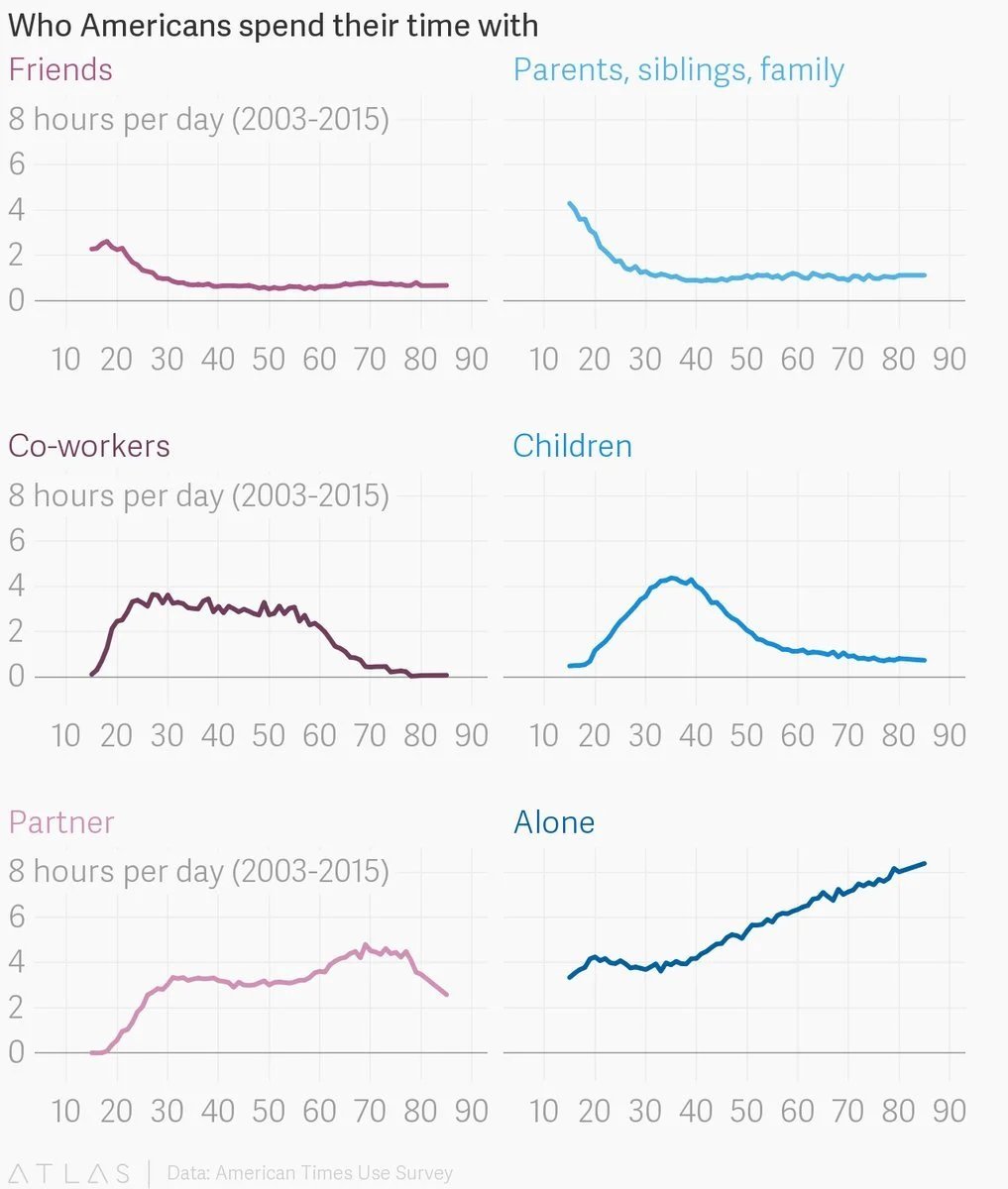
Enough of the doom and gloom:
Let's crank up the optimism and agency dial in life's video game.
5 solutions for these problems:
Let's crank up the optimism and agency dial in life's video game.
5 solutions for these problems:
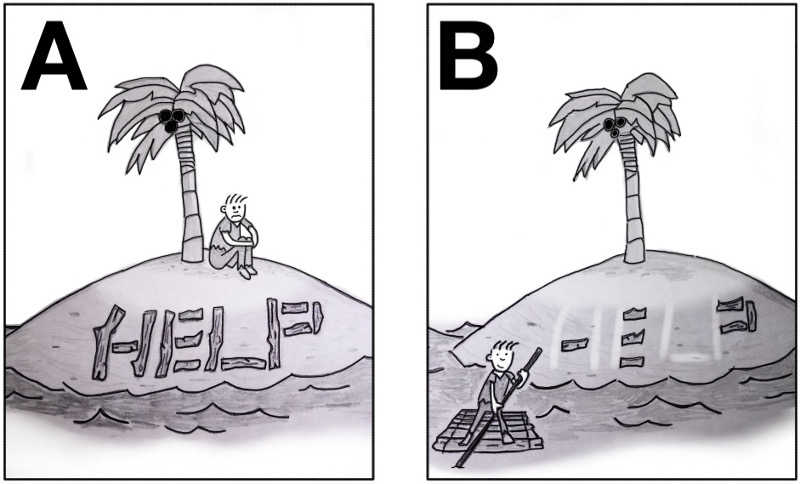
Solution 1 - Create recurring events with friends and family
Schedule something in the diary.
Make it recurring.
When you catch up with an old friend -- don't wait for chance, schedule the next meeting in the diary before you leave.
Schedule something in the diary.
Make it recurring.
When you catch up with an old friend -- don't wait for chance, schedule the next meeting in the diary before you leave.
From 0-25, you are swimming downstream to see your family and friends. The environment makes it easy for you.
From 25+, you are swimming upstream to see your family and friends. The environment makes it difficult for you.
Diligent planning can combat this -- or years fly by.
From 25+, you are swimming upstream to see your family and friends. The environment makes it difficult for you.
Diligent planning can combat this -- or years fly by.
Solution 2 - Take a break every quarter.
This acts as 4 milestones every year.
Sit there with a notepad and pen. Stop the momentum. Create a new chapter. Design another level for life's video game.
Question all goals and values. Re-design a new prototype for the next quarter.
This acts as 4 milestones every year.
Sit there with a notepad and pen. Stop the momentum. Create a new chapter. Design another level for life's video game.
Question all goals and values. Re-design a new prototype for the next quarter.
Be Like Japan:
When I ask people where they want to travel to: Most say Japan
Japan practiced an isolationist policy called Sakoku for 265 years. They largely cut off the outside world -- resulting in a unique culture.
Once per quarter, practice Sakoku for a weekend or a week.
When I ask people where they want to travel to: Most say Japan
Japan practiced an isolationist policy called Sakoku for 265 years. They largely cut off the outside world -- resulting in a unique culture.
Once per quarter, practice Sakoku for a weekend or a week.
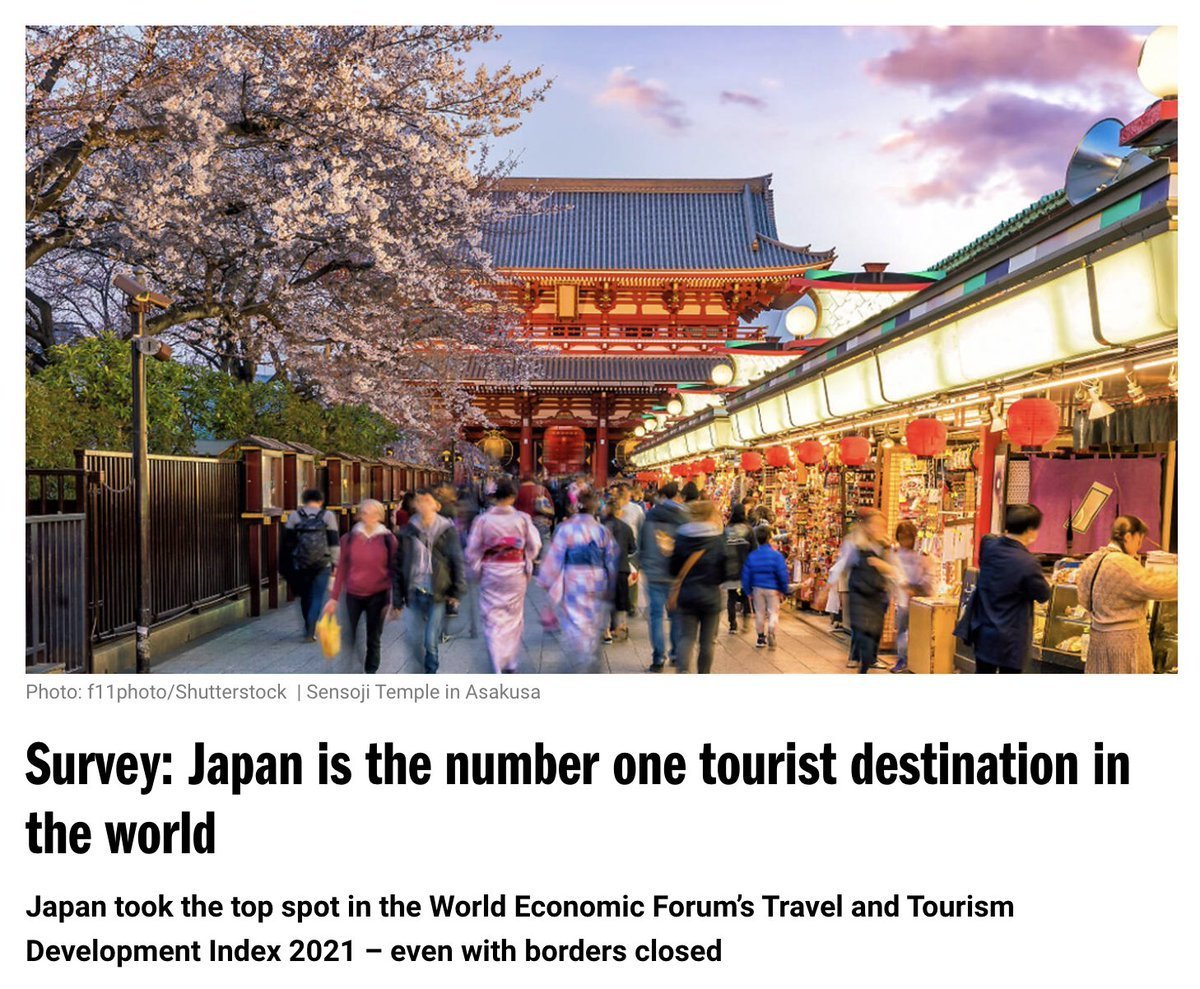
Solution 3 - Learn How To Learn
The bad news is that society put you through an educational program designed to create Victorian factory workers.
The good news is that everyone else also went through it -- so your competition is starting from the same point.
The bad news is that society put you through an educational program designed to create Victorian factory workers.
The good news is that everyone else also went through it -- so your competition is starting from the same point.
The last time most adults learn a new skill is when they learn to drive.
This is PTSD from the education system.
Fall in love with learning again.
If you learn how to learn, you can learn anything
This is PTSD from the education system.
Fall in love with learning again.
If you learn how to learn, you can learn anything
Solution 4 - Celebrate the 25th Birthday
If your brain fully develops at 25, this should be a huge milestone -- like a Bar Mitzah-style birthday.
Society treats this like any other birthday.
This doesn't make sense.
If your brain fully develops at 25, this should be a huge milestone -- like a Bar Mitzah-style birthday.
Society treats this like any other birthday.
This doesn't make sense.
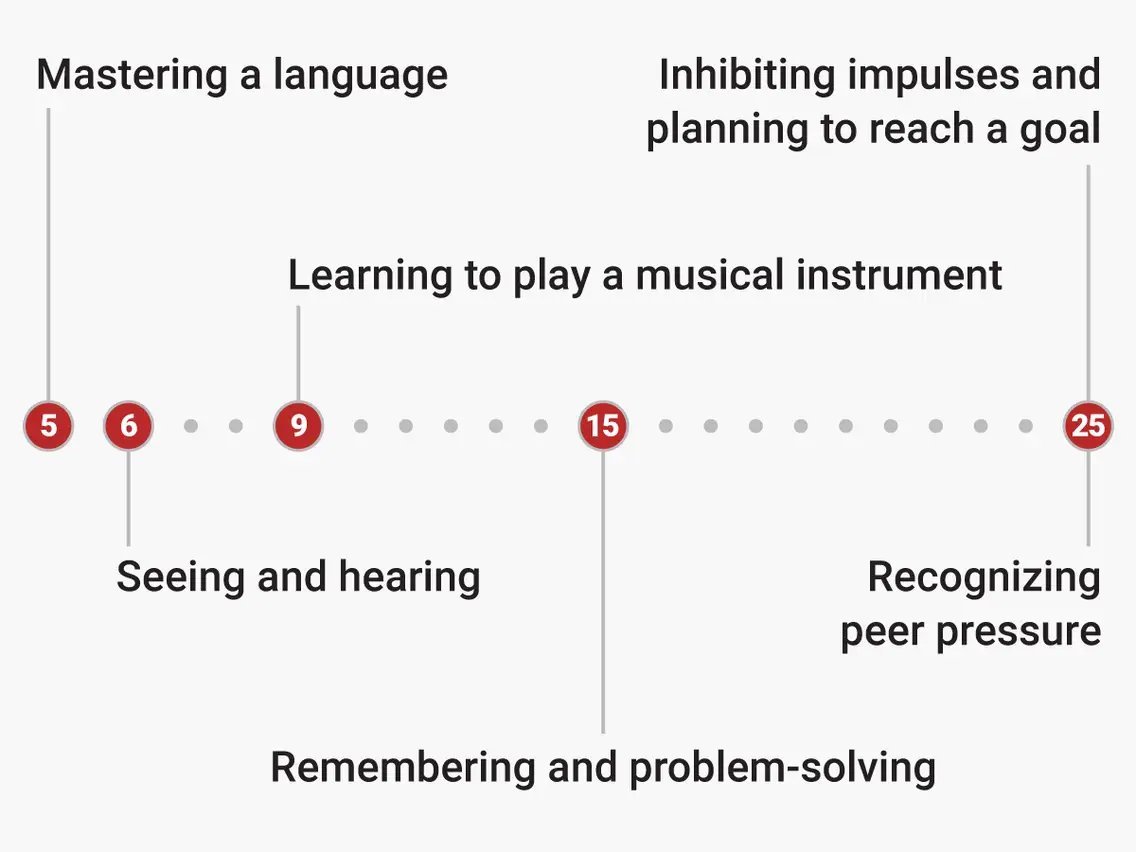
As a society, the 25th Bar Mitzah should have the following rituals:
1. Embrace adulthood - A clear milestone that gives meaning. And passes the guard of the Parenting Switch.
2. Remind them not to lose their child-like inhibitions - Creativity. Curiosity. Having fun.
1. Embrace adulthood - A clear milestone that gives meaning. And passes the guard of the Parenting Switch.
2. Remind them not to lose their child-like inhibitions - Creativity. Curiosity. Having fun.
Solution 5 - Create Rituals
As society becomes less religious and more rational, it's like a product with amazing back-end technology -- but terrible front-end UX.
If you're gonna opt out of religion -- make sure you don't throw the baby out with the bathwater.
As society becomes less religious and more rational, it's like a product with amazing back-end technology -- but terrible front-end UX.
If you're gonna opt out of religion -- make sure you don't throw the baby out with the bathwater.
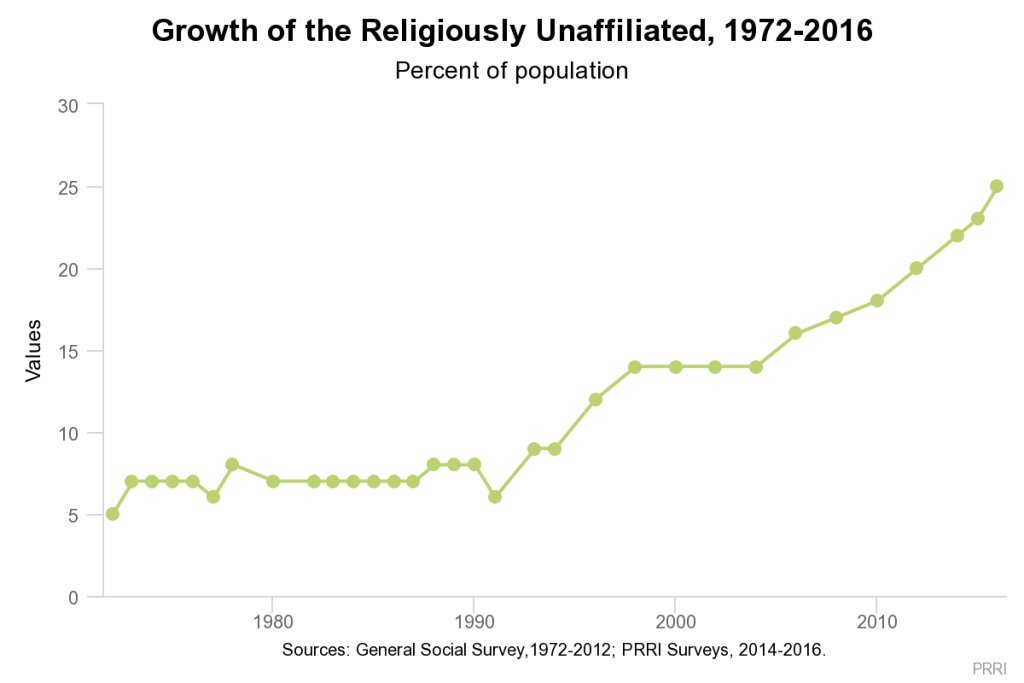
If you're not religious -- try to take some of the wonderful things it has:
• Sabbaths with family
• Deeply designed values
• Barmitzhas for big birthdays
• Give away % of money to a cause
• Water and food fasts once per year
• Sabbaths with family
• Deeply designed values
• Barmitzhas for big birthdays
• Give away % of money to a cause
• Water and food fasts once per year
PS. If you enjoyed this essay, I've put together the 0.1% of resources, articles and videos I've found.
Get it for free at:
george-mack.com
george-mack.com
Get it for free at:
george-mack.com
george-mack.com
Note: I made a mistake by not uploading what designing things like a video game should look like.
Here's the full image of turning a to-do list into a video game:
H/T my man @TrungTPhan for spotting this.
Here's the full image of turning a to-do list into a video game:
H/T my man @TrungTPhan for spotting this.
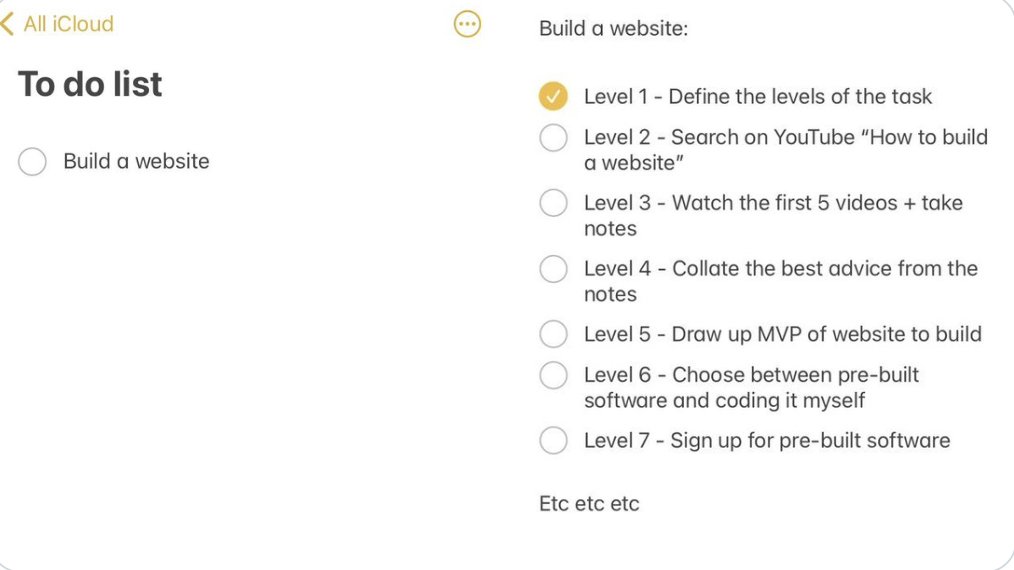
• • •
Missing some Tweet in this thread? You can try to
force a refresh

 Read on Twitter
Read on Twitter




















